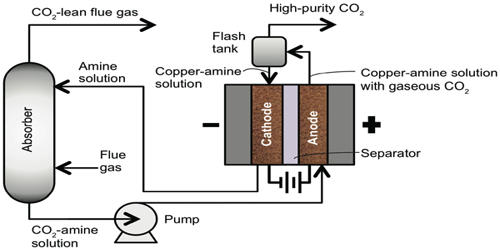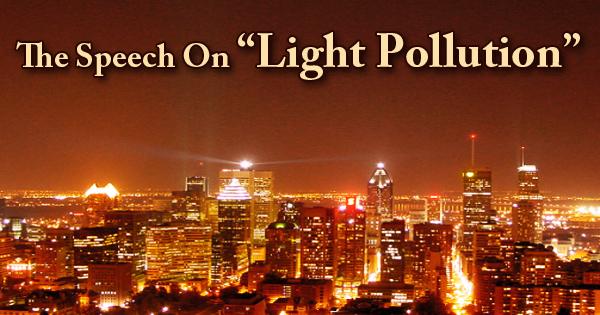Studies have shown that childhood trauma can have a significant impact on an individual’s environmental attitudes and behaviors. Childhood trauma can shape an individual’s values and beliefs, leading to a greater concern for environmental issues and a stronger motivation to engage in pro-environmental behaviors. Additionally, individuals who have experienced trauma may have a heightened sense of empathy and a stronger desire to care for others and the world around them.
A new study based on survey data from hundreds of U.S. adults links childhood trauma to later-life public environmental engagement, such as writing letters to elected officials or donating time and resources to a nonprofit.
According to new research published in Scientific Reports, experiencing childhood trauma may lead to an individual volunteering, donating money, or contacting their elected officials about environmental issues later in life.
The CU Boulder and Loyola University study is one of the first in the United States to link childhood trauma and adult civic and environmental engagement. It also discovered that people who traveled and had experiences in nature as children were more likely to report engaging in private “green behavior” as adults, such as recycling, driving or flying less, and taking shorter showers, in addition to those who experienced childhood trauma.
We set out to investigate why someone would become environmentally engaged versus not, and experiencing childhood trauma emerged as a really powerful motivator.
Urooj Raja
“We set out to investigate why someone would become environmentally engaged versus not, and experiencing childhood trauma emerged as a really powerful motivator,” said lead author Urooj Raja, who will receive her doctorate in environmental studies from CU Boulder in 2021.
The researchers conducted a survey in 2020 using a nationally representative sample of about 450 U.S. adults as part of Raja’s doctoral work to examine two types of environmental engagement. Hours per month devoted to an environmental protection cause, such as writing letters to elected officials or donating time and resources to an organization, were used to calculate public civic engagement. Green behavior in the private sphere was defined as self-reported actions taken by individuals or households to reduce their environmental impact.
Previous research has shown that people who witness natural disasters as children are more likely to become involved in environmental causes as adults, but these new findings show that any type of childhood trauma is associated with increased interest in both private and public environment engagement as an adult. This suggests that there may be something about a formative, negative experience that drives individuals to engage with environmental issues on a public or policy level, rather than just practicing green behavior.
“It suggests that there could be another way of looking at trauma,” said Raja, now an assistant professor in the School of Communication at Loyola University Chicago.
While the researchers can’t say exactly why experiencing traumatic events earlier in life boosts the likelihood of getting publicly involved in environmental issues, they note that previous research has associated trauma with a strong sense of empathy, and empathy with green behavior. It could also partly be a coping mechanism, to attempt to keep bad things from happening to other people or living things, said Raja.

Drivers of environmental engagement
Disengagement – the reasons why people do not act on pressing environmental issues – has been a frequent focus of research in this area. Raja’s team wanted to know: What motivates those who do participate? Raja began by interviewing 33 people who are deeply involved in environmental issues. She discovered that many had suffered from childhood trauma. “It emerged as a very powerful piece of why people wanted to and got involved in environmental work,” Raja explained.
Second, they collected survey data from approximately 450 U.S. adults who self-reported spending five hours or more in the previous month working on environmental issues. They answered a series of questions about themselves, including their current civic engagement and green behavior, formative childhood experiences (for example, gardening, swimming in a lake, or going on their first hike in the woods), and traumatic childhood experiences (living in poverty or experiencing hunger, not having a safe home environment, losing a parent or sibling, dealing with health issues, or enduring sexual harassment, assault or bullying).
The data revealed that childhood nature experiences, travel, and trauma were all predictors of later-life private, green behavior. Only childhood trauma, however, was found to be significantly associated with public, civic engagement. When compared to other formative life experiences, trauma had the greatest impact on predicting green behavior.
Earlier research, including that of Louise Chawla, professor emerita in the Program in Environmental Design, has found a strong link between childhood travel and nature experiences and pro-environmental attitudes and behaviors later in life. According to the new survey, these types of childhood experiences continue to predict green behavior in adults today.
“This is another data point that supports the value of creating opportunities for people to connect with nature, and the importance of those experiences for cultivating a society that protects the natural resources that we all depend on,” said Amanda Carrico, co-author of the new study and associate professor in the Department of Environmental Studies at CU Boulder.
A need for more resources and support
Carrico, who is trained as an environmental psychologist and teaches courses on climate change, has noticed that many students and professionals in the field struggle not only with the weight of their work, but also with the experiences that may have led them to it.
“It’s emotionally intense and exhausting,” Carrico said, noting that those working on climate change mitigation are frequently part of communities directly affected by its growing effects. “You’re discussing a community of people who appear to be carrying other types of emotionally complex burdens.”
According to the authors, the findings only emphasize the importance of people engaged in public-facing or civic environmental work having access to resources and support. “People have said in their own words that we need better resources,” Raja said. “Creating a link between adversity in childhood and the need for more resources for people who do this type of work is an important first step toward making that happen.”
















